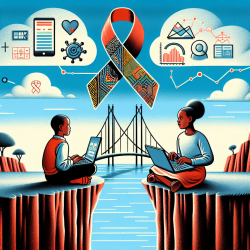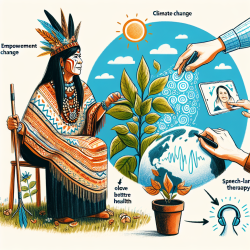Introduction
In the realm of public health, understanding the intersectionality of stigma, mental health, and HIV is crucial for developing effective interventions. The recent study titled Living a Private Lie: Intersectional Stigma, Depression and Suicidal Thoughts for Selected Young Key Populations Living with HIV in Zambia sheds light on the complex challenges faced by young men who have sex with men (MSM) and transgender women (TGW) in Zambia. As practitioners, it is imperative to leverage these insights to improve our therapeutic approaches and outcomes for affected populations.
Understanding Intersectional Stigma
The study highlights the profound impact of intersectional stigma on mental health outcomes among young HIV-positive MSM and TGW. The research indicates that 36% of participants experienced moderate to significant symptoms of depression, with 36% contemplating suicide at least once. These statistics underscore the urgent need for targeted interventions that address the dual burden of HIV-related stigma and stigma associated with sexual orientation and gender identity.
Implications for Practitioners
Practitioners can draw several actionable insights from this study:
- Adopt a Socio-Ecological Approach: Effective interventions should consider the broader socio-ecological factors influencing stigma and mental health. This involves structural interventions that address societal norms and policies contributing to stigma.
- Implement Trauma-Informed Care: Providing trauma-informed and identity-supportive care is essential for young people living with HIV. Practitioners should be trained to recognize and address the unique challenges faced by these populations.
- Foster Resilience and Coping Strategies: Encouraging resilience through positive coping mechanisms, such as exercise, meditation, and social support, can significantly improve mental health outcomes.
Encouraging Further Research
While the study provides valuable insights, it also highlights the need for further research. Practitioners are encouraged to explore the following areas:
- Community-Based Interventions: Investigate the effectiveness of community-based interventions in reducing intersectional stigma and improving mental health among young HIV-positive populations.
- Longitudinal Studies: Conduct longitudinal studies to assess the long-term impact of stigma on mental health and HIV management outcomes.
- Cross-Cultural Comparisons: Compare intersectional stigma experiences across different cultural contexts to identify universal and context-specific intervention strategies.
Conclusion
Addressing intersectional stigma and its impact on mental health requires a comprehensive and data-driven approach. By implementing the insights from this study, practitioners can play a pivotal role in improving the lives of young HIV-positive MSM and TGW in Zambia and beyond. To read the original research paper, please follow this link: Living a private lie: intersectional stigma, depression and suicidal thoughts for selected young key populations living with HIV in Zambia.










